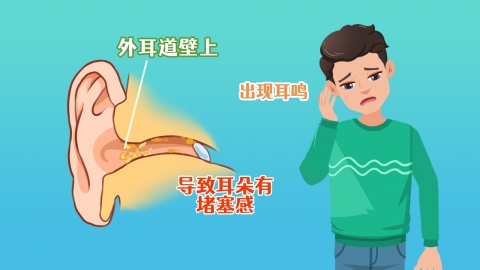What are the methods for eliminating tinnitus?
Generally speaking, there is no such thing as a method to completely eliminate tinnitus. Tinnitus may be caused by factors such as stress and fatigue, emotional fluctuations, external otitis, otitis media, Ménière's disease, and others. It is recommended to seek timely medical attention and improve symptoms through general treatments, medication, and other methods under a doctor's guidance. A detailed explanation is as follows:

1. Stress and Fatigue
When the body remains under excessive stress or extreme fatigue for a prolonged period, it may lead to dysfunction of the autonomic nervous system, causing spasms of blood vessels in the inner ear and subsequently triggering tinnitus. In daily life, maintaining a regular schedule, ensuring adequate sleep, and learning to relieve stress through exercise, meditation, deep breathing, and other methods are recommended.
2. Emotional Fluctuations
Intense emotional changes, such as anxiety, depression, and anger, can affect the brain's neural regulatory functions, altering the excitability of nerves in the inner ear. There is a neural connection between the limbic system of the brain and the inner ear; during emotional changes, the limbic system may influence the inner ear through nerve conduction, causing tinnitus. It is recommended to learn emotional regulation, cultivate a positive and optimistic mindset, communicate more with others, and participate in social activities.
3. External Otitis
External otitis is often caused by bacterial or fungal infections, allergic reactions, or trauma. Inflammation irritates the skin and nerves of the outer ear, leading to ear congestion and swelling, affecting sound transmission. The release of inflammatory mediators also stimulates the nerves of the inner ear, causing tinnitus. Symptoms such as itching in the outer ear and increased secretions may also occur. Treatment may include medications such as levofloxacin ear drops, cefixime capsules, and ketoconazole shampoo, under a doctor's instructions.
4. Otitis Media
Otitis media often occurs secondary to upper respiratory tract infections, with bacteria or viruses spreading to the middle ear through the eustachian tube. When inflammation occurs in the middle ear cavity, it causes pressure changes within the middle ear, affecting the normal vibration of the eardrum. Inflammation may also stimulate the auditory ossicles and inner ear nerves, causing tinnitus. Symptoms such as ear pain and fever may also accompany. Patients may take medications such as cefuroxime axetil tablets, erythromycin enteric-coated tablets, and amoxicillin capsules according to medical advice.
5. Ménière's Disease
Ménière's disease may be associated with endolymphatic hydrops in the inner ear. Imbalance in the production and absorption of endolymph leads to the expansion of the endolymphatic sac, compressing the auditory and balance organs of the inner ear, causing tinnitus. Symptoms such as episodic vertigo and a feeling of fullness in the ear may also occur. Patients may take medications such as betahistine hydrochloride tablets, diazepam tablets, and prednisone acetate tablets as advised by a doctor.
In daily life, avoid staying in high-decibel environments for long periods, such as in KTVs and construction sites. Use earplugs or other protective equipment when necessary. Additionally, undergo regular ear examinations, especially individuals with a family history of ear diseases or those engaged in specific occupations.






